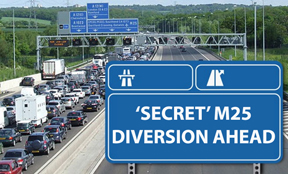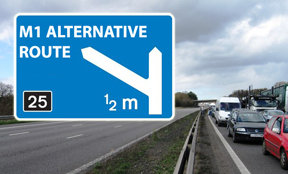
High blood pressure, or hypertension, is a common condition that affects many drivers in the UK. It is essential to understand how this condition might impact your ability to drive safely and comply with UK driving laws.
Here we look at if you need to report it to the DVLA and the impact it could have on your ability to drive.
- Please note this is for general information and is not medically reviewed. Always speak to a medical professional for advice before driving if suffering from any condition that could impact your ability to drive safely and legally.
 Do you know if and when you need to tell the DVLA about high blood
pressure if driving? (Credit: Pixabay/ Whitechappel79)
Do you know if and when you need to tell the DVLA about high blood
pressure if driving? (Credit: Pixabay/ Whitechappel79)
What does the law say about driving with high blood pressure?
In the UK, the Driver and Vehicle Licensing Agency (DVLA) sets guidelines for medical conditions that could affect a driver’s fitness to operate a vehicle. High blood pressure itself is not a notifiable condition unless it causes other complications that could impair your ability to drive safely.
You must inform the DVLA if your hypertension leads to related conditions such as heart problems, vision impairment, or episodes of fainting (syncope). These issues could pose a safety risk to you and other road users. If you are unsure whether your condition is reportable, consult your GP or the DVLA’s medical guidance.
Managing high blood pressure for safe driving
Hypertension can generally be managed effectively with the right lifestyle choices and medical care. Here are some tips to ensure your condition doesn’t interfere with safe driving:
-
Follow medical advice: Take your prescribed medications as directed by your healthcare provider. Medications such as beta-blockers or ACE inhibitors are commonly used to control blood pressure.
-
Monitor your condition: Regularly check your blood pressure to ensure it is within the target range. Home monitoring devices can help you track readings and identify any sudden changes.
-
Address symptoms: High blood pressure itself often has no noticeable symptoms, but extreme cases can cause dizziness, headaches, or blurred vision. Avoid driving if you experience any of these symptoms.
-
Maintain a healthy lifestyle: Reduce risk factors by eating a balanced diet low in salt, exercising regularly, managing stress, and avoiding excessive alcohol or caffeine.
Insurance implications
Failing to disclose a medical condition that impacts your driving ability can invalidate your car insurance. If your high blood pressure is severe and affects your fitness to drive, notify your insurer as well as the DVLA. Most insurers do not penalise drivers for having high blood pressure, especially if it is well-controlled and does not cause complications.
When to seek medical advice
You should consult a healthcare professional if:
-
Your blood pressure remains consistently high despite treatment.
-
You experience symptoms such as fainting, dizziness, or blurred vision.
-
You develop conditions linked to hypertension, such as angina or heart disease.
A GP can assess whether your condition requires DVLA notification and provide guidance on safe driving practices.
Conclusion
Most individuals with high blood pressure can drive safely and legally in the UK as long as their condition is well-managed. By following medical advice and monitoring your health, you can minimise risks and stay compliant with the law. If in doubt, consult your GP or refer to the DVLA’s medical guidance to ensure you meet the necessary fitness-to-drive standards.
Subscribe for free motoring and travel news here - support independent journalism
Most read motoring content today
Take a look at more of our top motoring-related content here...
-
How to spot a fake undercover police car
-
My driving licence hasn't arrived back from the DVLA - can I keep driving?
-
Will I get a 6-month extension to my MOT
-
Will I get a speeding ticket after being flashed
-
Do I need an international driving permit for France and Spain
-
Secret parking offences you're committing revealed
-
Alternative routes for beating jams on the M25
-
Alternative routes for the M1 motorway
-
Alternative routes for the M6 motorway
-
How old are my tyres - find out instantly here
-
What are the black dots on my windscreen for?
-
Are my sunglasses legal for driving?
Author: Pete Barden:
Twitter: @pete_barden
Pete Barden is a qualified journalist who has written and produced for publications including The Sun (thesun.co.uk), New Statesman Media Group, Whatcar? (Whatcar.com) Stuff Magazine (Stuff.tv), Fastcar Magazine (Fastcar.co.uk), Maxim Magazine and UK broadcast stations within the Heart network (Formerly GCAP). Pete specialises in motoring and travel content, along with news and production roles. You can find out more about Pete Barden on LinkedIn.












